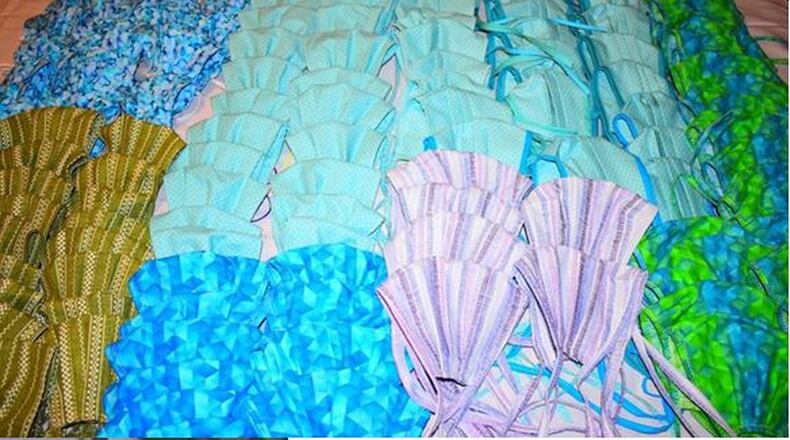The project began with Dr. Mounira Habli, an OB-GYN who serves as director of TriHealth’s Fetal Care Center. As she was sharing stories with colleagues around the world, it came to her attention that many hospitals were using hand-sewn masks to cover the protective N95 masks, which were in short supply to increase their longevity. Habli approached local hospital administrators who confirmed that they would be also accepted at their institutions.
Rahma’s team developed a workflow compatible with social distancing to execute this project including material allocation, video sewing instructions, and coordinated pickup and drop processes. More than 40 volunteers participated in this initiative, and within a week almost 400 handmade masks were made and distributed to TriHealth, University of Cincinnati, Mercy Health, and Premier Health/Atrium Medical Center systems.
Each hospital system will determine its own needs and best use of these covers. These masks do not replace personal protective equipment, but rather as an option to use as covers for the N95 masks to potentially increase their longevity.
Ahmad said the ICGC has been helping with the community with various social services since its founding in 1995 and established Rahma Community Services in 2012. The organization accepts contributions for its community service programs at icgc.us/donate.
Another of the physicians, Dr. Zaiba Malik, said, “Rahma is continuing to offer a multitude of programs during the pandemic: including stocking and distributing their food pantry items, offering ESL classes online, offering N95 masks to community health professionals, solidarity fund drive for those suffering from job loss or closing small businesses, community educational support systems with tutoring services for middle and high school kids, and even art competitions for school age kids during this time.”
Malik described the project with the word “solidarity.”
“As specialized surgeon, I have trained years to learn microsurgery and teach it. Now as I am sidelined, as elective surgeries are cancelled and only emergency patients seen in clinics, as we work collectively to flatten the curve, I am able to put my hands and suturing skills to use, to protect my colleagues on the front lines.”
She said her husband and her three children have been working on cutting, sewing, and making these masks on what would be her normal surgical days.
“With a large family of physicians, many who practice in Cincinnati, I worry about their exposure and lack of PPEs,” Malik said. “I am on the National Muslim Task Force for COVID-19 and there are numerous concerns daily including mental health for health professionals, PPE shortages, educating our communities, and SBA loan assistance for practices that can no longer afford payroll. This project offers me some tangible way to help as well as create mental space in a time where all the above initiates are requiring work.”
About the Author

